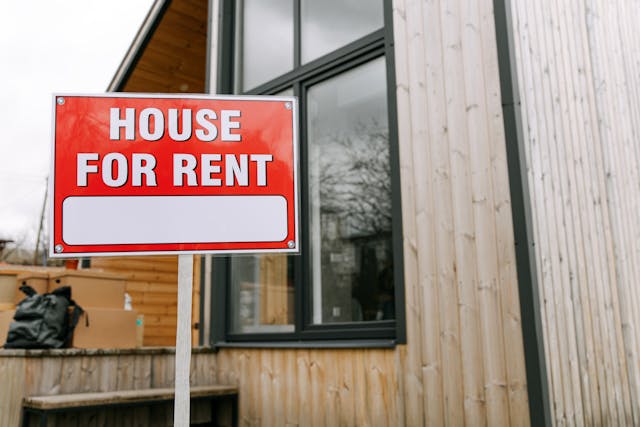Are you considering turning your home into a rental property? Whether you're relocating temporarily or simply aren't ready to sell, turning your home into a rental property can be a smart move.
With Florida's strong rental demand, many homeowners are jumping into the landlord role. But while the opportunity is exciting, operating a rental property comes with responsibilities and risks.
Renting out your house and becoming a landlord can turn your home into a thriving rental property business. Whether it's a single unit or multiple rental property units, treating your rental like a business helps you stay organized, compliant, and profitable.
Before you hand over the keys and become an official landlord, it’s essential to prepare your home to become a rental property, understand your legal duties, Florida laws, and protect your investment.
In this guide, Gulf Income Properties shares five crucial tips to help landlords rent out their homes with confidence.
5 Tips for Renting Out Your Home
It's important to identify key factors that affect your residential rental property's success, like the unit's condition and local demand. The price you pay, the price you charge, and how you invest in maintenance and upgrades all impact your return. Smart investors invest in quality, invest in strong management, and invest in understanding their market.
Hosting long-term tenants or short-term guests can both be profitable, depending on your goals. With the right plan, your residential rental property becomes more than a building—it becomes a business worth growing. That said, let’s explore five need-to-know tips to help you rent out your Bradenton home and avoid common landlord pitfalls.
1. Understand What It Means to Be a Landlord
Owning a rental property isn't just about collecting passive income every month—it’s about managing a legal and financial business relationship with your potential tenant. This means staying up to date with local laws to stay legally compliant.
As a landlord and property owner, you are legally obligated to maintain your rental property in a safe, habitable, and good condition. For example, this includes:
Functioning plumbing and electricity
Adequate weatherproofing
Pest control
Emergency exits
Proper waste disposal
Both the landlord and tenant must comply with Florida's Landlord-Tenant Laws, which govern everything from security deposits to eviction procedures.
For example, landlords are responsible for returning security deposits within 15 to 60 days after a tenant moves out of the rental property, depending on whether deductions are made.
In addition, Florida has no state income tax, but you’ll still need to report rental earnings on your federal tax return. If you only rent the property for fewer than 15 days a year, you may not need to report the earnings.

Although you also can't deduct rental-related and management fees. It's best to consult a tax professional to ensure you're following the rules correctly.
When purchasing property or preparing your property to rent, you also need to consider switching from a homeowner's insurance policy to insurance coverage suited for landlords and your property type. The right insurance policy will protect both the landlord and the tenant from liabilities.
2. Get Your Home Ready for Renters
If you intend to purchase a Florida rental property or convert your home into a rental, understanding factors like market price and tenant expectations is crucial to a smooth tenancy process.
Before you rent, consider hiring an experienced property manager who can help maintain legal compliance, maintain property standards, and assist throughout the entire tenant screening process to ensure your rental is priced right and protected.
Before listing, make sure the rental unit is move-in ready. Consistent maintenance is a key to attracting reliable tenants—well-kept properties signal care, conduct, and professionalism. Central Florida tenants have high expectations, and a well-prepared property will attract renters and justify higher rent.
Here are the key areas to consider to attract renters:
Deep clean all living spaces, bathrooms, and kitchen areas.
Fix leaks, electrical issues, or broken fixtures.
Service the HVAC and air conditioning system—a must in Florida’s hot climate.
Secure your home, especially if renting out only part of it.
You may want to purchase maintenance upgrades like fresh paint, new appliances, or landscaping to boost your rental property’s curb appeal. If you live near the coast, adding hurricane shutters or impact-resistant windows to the rental home can be a valuable bonus for safety-conscious potential tenants.
3. Market Your Rental Home the Right Way
With your home ready to rent, it’s time to showcase it to prospective tenants. Florida’s rental market is competitive, and your marketing strategy can make all the difference.
As a landlord, using strategic marketing can help your listing stand out and attract the right tenants by highlighting the best features of your home.
With a clear understanding of the rental process, you can establish your property’s value, navigate each step of the process, and ensure your listing is compelling, subject to local laws and license rules, while staying focused on the aspects that make your home stand apart.

Make sure your rental home listing includes certain things like:
High-quality photos
Detailed descriptions of bedrooms, bathrooms, and amenities
Appealing terms like “newly renovated,” “pet-friendly,” "pool access," or “close to beach”
Highlighting your property’s features—like modern amenities, located in a desirable part of town, and nearby amenities—can spark strong interest from potential tenants.
As part of owning a successful rental, you’ll want to identify what makes your home unique and cover essential details like insurance, permits, restrictions on persons in the unit, and lease requirements.
Mention features that prospective tenants will value, such as central air, ceiling fans, covered patios, a desirable location, or hurricane safety measures.
To reach renters, be sure to advertise your listing on multiple platforms like:
Zillow, Trulia, and Apartments.com
Realtor.com or MLS (via a real estate agent)
Facebook Marketplace or rental groups
If your rental property's location is near a tourist-heavy area, such as Orlando, Clearwater, or Miami, you may want to consider using short-term rental platforms like Airbnb or Vrbo. Converting your home into a vacation property is a smart move in Florida's tourist-heavy zones.
Note: Many Florida cities regulate or have restrictions on short-term rentals; therefore, it is essential to check local ordinances and HOA rules.
4. Hire a Property Management Company
Owning a rental property is time-consuming and incredibly difficult, and for many Central Florida landlords, hiring a property management company is the best decision they can make.
Property managers can be a key point of support for landlords, helping them obtain reliable tenants, handle utilities, maintain organization, and handle any issues that arise during a tenancy.
Property Managers' Responsibilities Include:
- Marketing and tenant screening
- Manage the rental's finances and collect rent
- Handle insurance policies, insurance coverage, and license regulations
- Maintenance and emergency repairs
- Lease agreements, lease enforcement and evictions
- Compliance with Florida housing laws and permits
With a professional license and industry experience, they act as the responsible party for daily operations, assist with insurance claims, and ensure everything runs smoothly so you don’t have to be the point person for every problem that comes up.
A property manager can advertise your rental, speak with applicants, and utilize proven strategies to ensure you sign a lease with a qualified tenant.

You can expect comprehensive service that includes lease provisions, prompt notify protocols in the event of maintenance issues, and tools to track costs, helping you create a profitable rental experience without having to solely manage every detail.
They’ll also make sure your lease agreements meet Florida’s legal standards, handle security deposits properly, and stay on top of regulations, saving you from potential fines or lawsuit costs. Most Florida property management companies take a pay equal to 8% or 12% of the monthly rent.
Some may include setup fees or charge extra costs for finding tenants or handling routine maintenance of the rental property. While it’s an added expense to pay, it can give you peace of mind and free up your time, especially if you plan to landlord out of state.
5. Screen Your Tenants Thoroughly
Finding the right tenant is one of the most important parts of protecting your rental property. Use a rental application to gather key information and conduct credit and background checks. Always verify employment and contact previous landlords for references.
Florida landlords must comply with federal and state Fair Housing Acts, which prohibit discrimination based on race, religion, sex, disability, family status, or national origin. Apply your tenant screening criteria equally to all applicants and keep thorough records.
Once you’ve chosen a tenant, use a Florida-specific lease agreement that includes:
Rent amount and due date to pay
Grace period for late payments, if any
Security deposit details
Maintenance responsibilities
Entry notice policies
Pet rules and occupancy limits
Avoid using generic lease agreements and rental agreements from the internet. A property manager or real estate lawyer can help ensure your lease is enforceable and up to date with Florida law.
Bottom Line
Owning and operating a rental home in Florida can be a great way to generate revenue and maintain ownership of a valuable investment. But to do it successfully, you must be prepared, organized, and informed about state laws and rental dynamics.
No matter what type of property you’re renting out, these five tips will guide you toward a successful and profitable rental experience.
The smartest step you can take? Hire a property management company like Gulf Income Properties. We bring expertise in marketing, legal compliance, and tenant management—all of which can help protect your property, advance profits, and reduce stress.
Discover the benefits of hassle-free property management with our trusted team. We handle every aspect of your rental, from payment collection to liability protection, so you can focus on what matters.
Our assistance permits peace of mind by ensuring all legal requirements are met and every important document is in order. Let us protect your interests and maximize your returns—because your property deserves professional care.


